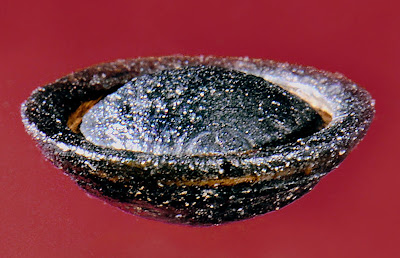Ev'rybody's talkin' about inflation/inflation's a popular word... It's 15.6% in Poland! Prices are going through the roof. Hang on to your money, people! Shop prudently...
Since the beginning of last month, on the działka, I started monitoring my food spend, keeping receipts and keeping a mental note of what costs what. I generally shop in the Top Market in Chynów, there's not a huge choice on the shelves (even compared to Jeziorki's local Lidl or Biedra), but I can get by.
The basics are bread, butter and cheese. With these staples, I can keep body and soul together for ages. Chynów lacks a bakery - supermarket breads aren't the same as a fresh loaf with warm crust, which you can almost eat on its own. So I choose rye breads in a bag with a sell-by date three or four days away, the sunflower seed variant being good. Lurpak, my spreadable butter mix is now up to 10.19zł (from 8.89zł in early July). Crispbread as an alternative is on hand - here I choose matzos from either Sonko or Polskie Młyny, the latter being crispier and cheaper.
Cheeses - this is no city; the selection is slim. One I have in the fridge at all times is Favita from Mlekovita, which I call 'Fetadelphia'. It tastes like feta (it isn't - it's made in Poland of cow's milk, but is salty and spreads like Philadelphia cheese). It melts into cooking - I add it to my lentil stews - and is readily available in all village shops. My other cheese discovery is Castello Danablu Danish cheese - at 7.79zł for 100g the cheapest imported cheese with taste. A Polish cheese with taste (a lot like a mature Edam or Gouda) is Bursztyn, the six-month old version costing 10.39zł for 180g. Most Polish cheeses exist merely to keep bread apart in a sandwich and are called things like 'ser z dziurami' (literally - cheese with holes) and do not shock the consumer with qualities like taste. Big thank-you to my brother for both the large jars of Marmite, both limited editions (one is XO, the other with chilli); these serve as sandwich spread, as hot drinks, or as stock stirred into cooking.
Baked potatoes (peeled, halved, then in the oven from 40 mins to an hour depending on size) are another staple, lightly salted and eaten with butter and Fetadelphia or another cheese, or anchovy fillets.
Main hot staples are lentil and vegetable stews served with either basmati rice or bulgur wheat. The lentils are parboiled, then sautéed in a pan with onions, garlic, chilli and cherry tomatoes - sometimes with meat in the form of chorizo, other times with Fetadelphia melted in. There are variations - leeks often go in, fresh sorrel (when in season), anchovies, peanut butter stirred in, or red pepper. Sometimes green lentils rather than the orange ones, although they take longer to boil. Below: the signature dish, heated up for breakfast.
Cherry tomatoes are more than twice as expensive (13.79/kg) as the regular ones (6.49), but are tastier and more versatile, I can cook with them (as seen above), eat raw or use as a pizza topping (see below).
Ready meals - Dr Oetker's cheapest mushroom pizza, Rigga, is the standard, upon which I pile chorizo slices, anchovies, olives, cherry tomatoes and onion. Ten minutes in a pre-heated oven and ready. New this year is Thai chicken rice from Graal (from frying pan rather a microwave, which I don't have). Hortex dabbled with world-food ready meals last year, but have withdrawn this product line - Graal's ones stand more chance, being a slightly bigger portion (360g vs 350g), significantly cheaper (7.99zł vs 10.98zł) and ambient rather than frozen. While stir-frying the meal, I add vegetables such as red pepper and onion. A hot meal once a day is essential.
Beverages - I don't have an espresso machine on the działka, I have a cafetière, so there's no point of spending extra for Lavazza. Instead, I buy MK Cafe Premium, which is almost half-price compared to Lavazza in Chynów (23.99zł for 500g). Tea I drink exclusively with lime and honey; limes cost between 2.50zł and 3zł each depending on size and season; I cut in half lengthwise, then cut into six or seven half-slices; this is enough to flavour over a litre of tea. Sweeten with honey. Beer - three a week, usually something interesting from local craft brewery, Browar Perun (they have a stand at Top Market with a selection of interesting brews). Apple juice - I can buy a three-litre bag of juice made from local apples in couple of shops for 15.90zł or (more rarely available) a five-litre bag for 19.90zł. A portion is 200ml, so these last a long time.
From time to time I'll ride into town on a motorbike, but more usually I'll walk to the shop to get my paces in. There's something intrinsically noble about walking for my food and carrying it home on my back. And a very important point - I do not waste food. Nothing (other than banana skins and apple cores) gets thrown out. This - plus walking to the shop - means planning. "Shop often, buy less."
Fruit (other than bananas and limes) is local - from my garden or from neighbouring orchards (I have two rules here - never enter an enclosure, never pick apples off the tree - just pick up from the ground, or pick cherries or plums only from trees overhanging public thoroughfares). Cherries - wild and sweet; plums or different varieties, blackcurrants, blackberries. One season ends, another begins, the fruit is there from June (wild strawberries) through to November (apples, late raspberries). This means I can maintain an average of six portions of fresh fruit and veg. My diet is varied, hardly any meat, and frugal.
Running total for six weeks works out at an average of 31.50zł a day for keeping myself in food and drink (£5.70 at today's rate of 5.51zł to the pound). I will write a separate post about solar energy soon.
This time last six years ago:
W-wa Jeziorki new platform open
This time ten years ago:
Warsaw opens up the Vistula banks








































